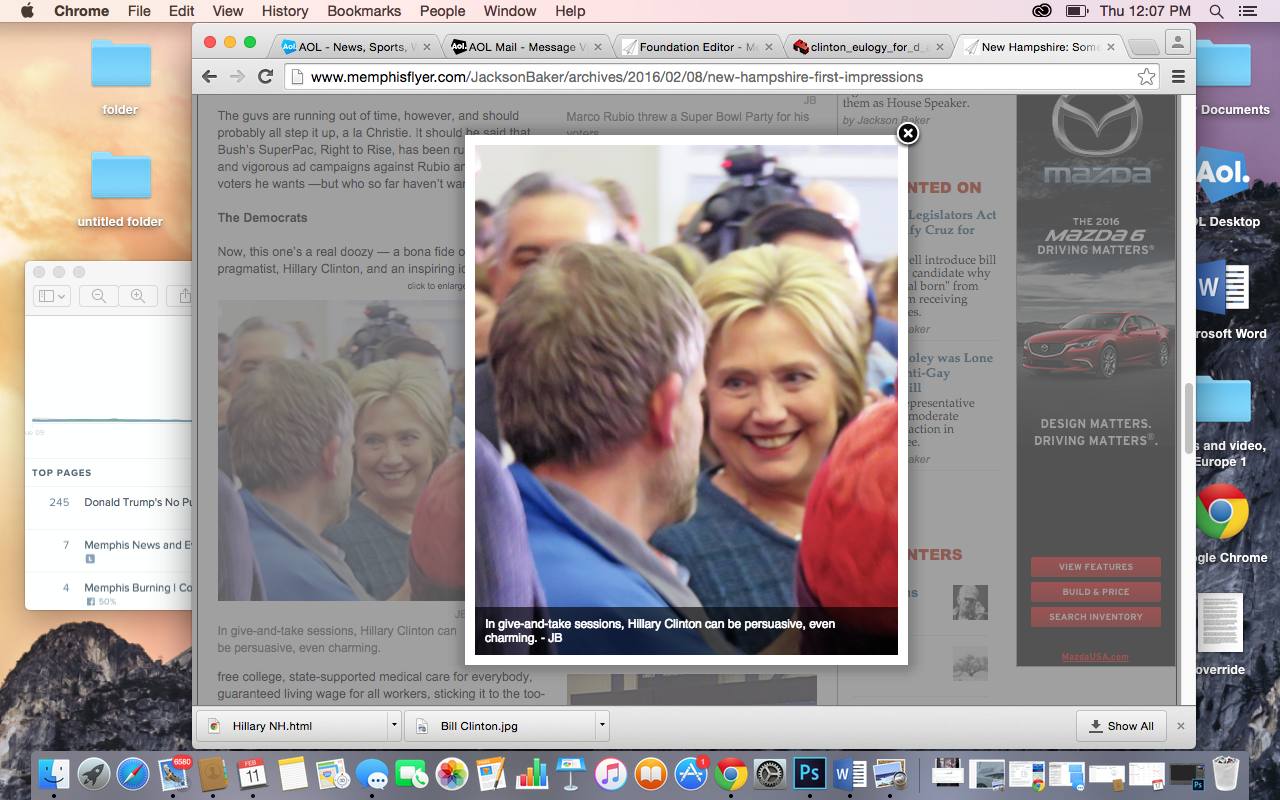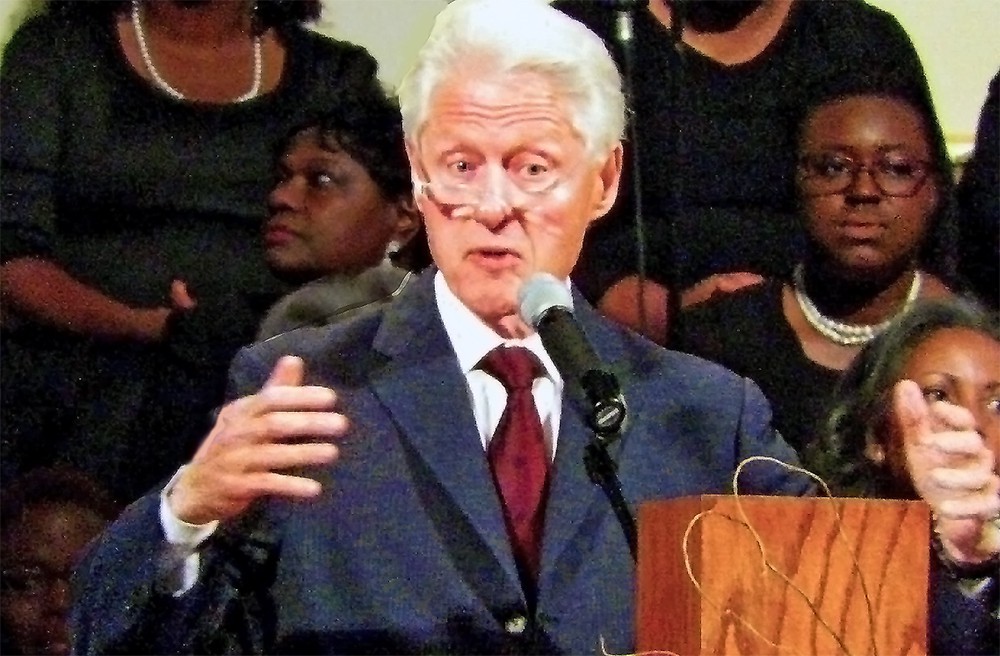EN ROUTE TO MEMPHIS FROM NEW HAMPSHIRE — Bill Clinton’s visit to Memphis on Thursday (6 p.m. at Whitehaven High School), during the early-voting run-up to the Super Tuesday primary of March 1, may have more than one purpose, but its overriding point is clearly that of a rescue mission for the suddenly endangered presidential campaign of his wife, Hillary Clinton. JB
JB
Hillary in Henniker, N.H. last week
 JB
JB
Bill Clinton in Memphis last year
By dint of having run successfully in the so-called SEC states of the Southeast during his own two presidential campaigns of 1992 and 1996, the former president has ample residual cachet in these parts, much of it stemming from his even earlier long-term reign as Governor of neighboring Arkansas.
Hillary Clinton’s base of support here? Not so much, though she, not Barack Obama, was clearly the consensus choice of Tennessee’s Democratic establishment in the 2008 presidential-primary campaign, and her defeat, coupled with Obama’s virtual bypass of the state’s electorate in his own two runs, may have been the decisive factor in the subsequent evaporation of the Tennessee Democratic Party.
Though Hillary Clinton still has a dedicated following in local party circles, she is subject here, as elsewhere, to a basic dilemma playing out among Democrats everywhere, where momentum for the rival primary candidacy of Vermont Senator Bernie Sanders, post-Iowa and New Hampshire, is clearly mounting.
While in New Hampshire this past week, I bumped into Bob Schieffer, the genial ex-host of CBS’ Face the Nation, for whom the lure of looking in on another presidential race seems to have been a lure out of his semi-retirement.
Schieffer (whose daughter Sharon worked for then Memphis congressman Harold Ford Jr. as he geared up for his near-thing 2006 Senate race) is nothing if not accessible, and I’ve been having brief conversations with him on the campaign trail ever since the 1988 Repubilcan National Convention in New Orleans.
This latest conversation was during a break in last weekend’s Republican candidates’ debate in Manchester. I reminded him that, in a 2008 interview with candidate Clinton during her first try for the presidency, he had more or less called her out on her habitual use of an extended and not very convincing mock laugh to fend off awkward moments in such interviews.
Schieffer chuckled at the recollection, then turned serious: “She’s got a lot of problems this time around. Real ones.”
It’s nothing he wouldn’t have said on air, of course, but I was struck by the fact that he would say it now, in casual conversation, and by the way he said it, not without a trace of sympathy — not political sympathy, just human sympathy. And, along with everything else, one political element that candidate Clinton lacks that her husband had (and has) in abundance is, to put it simply, charm.
But the fact is that, while the former First Lady, Senator, and Secretary of State seems cursed with some kind of emotional firewall in public (one reason the fake laugh doesn’t work), the universal testimony of those who’ve kicked back with her in relaxed one-on-one sessions (as opposed to formal interviews) is that she is warm, communicative, and even, they say, a bit of fun.
I fancy that I happened to capture this side of her in the photo that accompanies this article which shows her having what seems to have been a real, if brief, moment of connection with a well-wisher after a Q-and-A with students and guests at New England College at Henniker. (Contrast this image, if you will, with the customary wide-eyed, open-mouthed gape Clinton uses on so many customers at these affairs.)
And, for all I know, Bernie Sanders, who is in the process of becoming not only a political threat to Clinton but a folk hero to his growing army of followers, may be flinty and remote in private. What matters in public is that Sanders, a self-professed socialist and, until recently, a political Independent, has a set of issues that are themselves the source of charm to his supporters.
Free college tuition, Medicare for all, socking it to the billionaire class — all this and more in Sanders’ arsenal is working.
It seems to be the fact that democratic (that’s small ‘d’) socialism is a concept that, after decades of association with taboo ideas and foreign enemies (“the Union of Soviet Socialist Republics, remember?) seems to have lost its politically lethal charge and seems to have found an audience out there in the mainstream. (‘Horrors!,’ some will say; ‘About time,’ will say others.)
What Hillary Clinton has by way of countering Sanders’ suddenly respectable call to revolution is what critics would suggest is a mish-mash of pragmatisms and compromise positions and talking points, all aimed at special interest groups and maybe capable of rocking the boat of privilege that the Koch Brothers and their ilk travel on but not of overturning it.
The differential between the two candidates on the fundamental matter of reform is what, right now, is making Bernie’s smile a little broader that it may naturally be. Charm is where you find it, either in ideas or in personality.